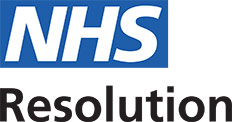This was a case where liability was admitted and the key issue was the correct measure of damages. There is an anonymity order in place to protect the identity of the claimant, but not that of the trust.
XX developed cancer of the cervix. This was not detected, either by way of smear tests in 2008 and 2012, or biopsies in 2012 and 2013. The claimant required chemo-radiotherapy treatment which in turn led to infertility and severe radiation damage to her lower abdomen. Had the cancer been detected as it should have been, XX would have had fertility-saving surgery. She had a strong ambition for children of her own.
Prior to key treatment, XX underwent a cycle of ovarian stimulation and egg harvest which produced 12 eggs that were cryo-preserved. She and her partner decided to opt for a commercial surrogacy arrangement in California, where it is legal to pay a woman to be a surrogate mother. In the UK, however, commercial surrogacy arrangements are illegal and it is a criminal offence to advertise either for a surrogate or to offer oneself as a surrogate. However, non-commercial surrogacy is permitted to the extent that reasonable expenses may be paid to the birth mother.
In the High Court, the trial judge awarded only reasonable expenses for a surrogacy arrangement, on the basis that that was the position under English law. This ruling was appealed by XX.
The Court of Appeal approached the case in a different way. It noted that what XX was proposing was entirely lawful in California and, importantly, that she would not be committing a criminal offence in England by being a party to a commercial surrogacy arrangement in a place where this was legal. Such an arrangement had other major advantages from the claimant’s perspective, because under UK law the surrogate mother chooses the parent and is the legal mother of the child, whereas the opposite situation obtains in the State.
In 2002 the Court of Appeal had held in the case of Briody v. St. Helens and Knowsley Area Health Authority that commercial surrogacy costs were not recoverable from the negligent health body in relatively similar circumstances, but that case was distinguishable because the chances of a successful outcome were extremely low. Here, the prospect of a live birth was significantly better. Further, public and judicial attitudes to surrogacy had moved on, and the family courts had recently approved payments made in connection with surrogacy in California.
The court therefore overturned the first instance ruling and allowed recovery of the costs of a commercial surrogacy arrangement in California. It concluded that to bar XX from recovering would prevent her from obtaining damages to reflect the loss of her personal autonomy in being able to found a family.
Comment
This was an extremely sad case where, due to negligence, a young woman’s cancer progressed significantly and she is unable to give birth to her own children as a consequence. It is right and proper that she obtains appropriate compensation. However, it might be thought surprising that the Court of Appeal allowed recovery of damages for an arrangement which is expressly illegal in the UK. We are therefore seeking to appeal this judgment to the Supreme Court, whose President is Lady Hale – who gave the main judgment in the Briody case in 2002. If the ruling is not overturned we are likely to see other claims for similar arrangements, which could prove very expensive for the NHS.






